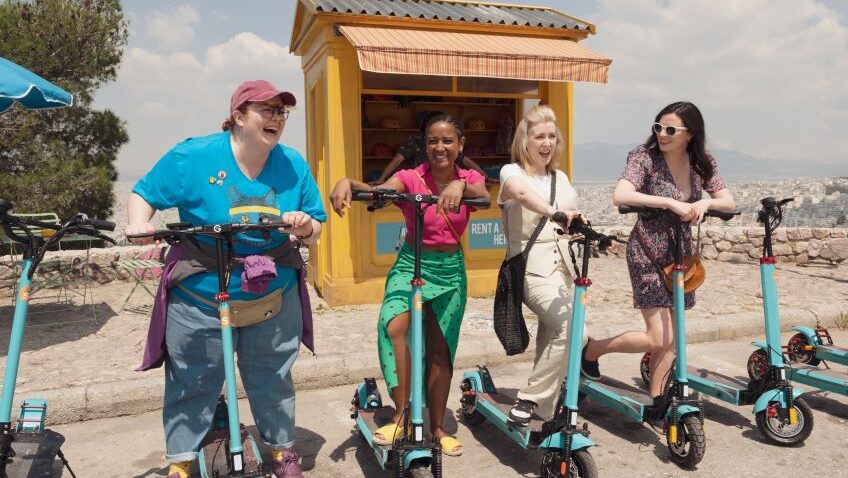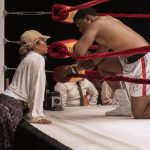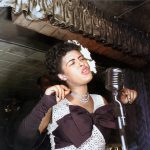Joyce Glasser reviews Greatest Days (June 16, 2023) 12A, 112 mins. In Cinemas.
There have been many films, some excellent, about our favourite songs; the music that defined a generation or an era; and the people who created and sang it. And now there’s Coky Giedroyc’s unabashedly enthusiastic, schmaltzy, loud and joyous Greatest Days, adapted from Tim Firth’s 2017 jukebox musical The Band. It will be a repeat-business hit for Take That fans, but older generations might find director Giedroyc and writer Firth struggling to balance the greatest hits of a five-member boy-band into a story of friendship between five female fans.
What Giedroyc does well is stage choreographer Dew McOnie’s big musical numbers and connect the teenage characters in the 1990s with the adult characters a quarter of a century later. Credit goes to the casting director Jina Jay for making the transition easy and credible. Whether or not in Clitheroe, Lancashire, 1993, five best friends would exhibit the diversity expected in casting today is another matter.
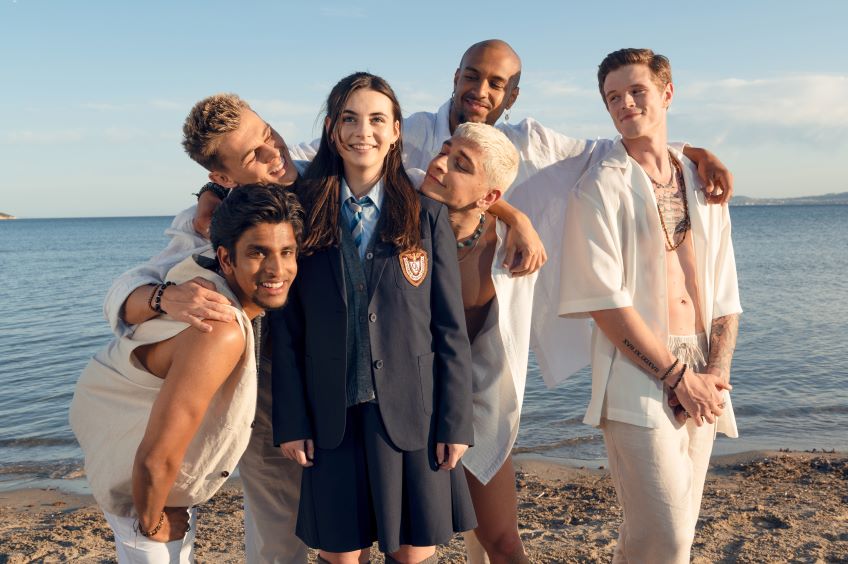
In any event, that is the setting, and Rachel (Lara McDonnell) would be defeated by her dysfunctional family, but for the company of Take That and their uplifting, defiantly upbeat, comforting or sympathetically sentimental lyrics. Unlike the other members of her family, we see what is in her mind, and that is a dancing-singing joy giving boy band, played by Aaron Bryan, Dalvin Cory, Joshua Jung, Mark Samaras, and Mervin Noronha. They deliver the boost she needs to rise about her downbeat, chaotic family life. Shooting these elaborate and intricate scenes takes skill, as “The Boys” as Rachel calls them, appear everywhere: when she’s under the covers or in the kitchen, where they come out of the woodwork, quite literally.
Rachel’s close friends are less well drawn, but they each have their own personalities and aspirations. There is studious Zoe (Nandi Sawyers-Hudson), diving champion – although without an athletic body champion – Claire (Carragon Guest), future fashion designer Heather (Eliza Dobson) and Rachel’s closest friend, Debbie (Jessie Mae Alonzo), herself a budding musician. “We are girls. We are 16. We are fantastic!” enthuses Debbie.
That is the mood when, thanks to a 16th birthday present, the girls are given five tickets to a Take That concert in Manchester. Dressed to the nines they have the time of their lives, and even missing the last train does not weaken the bond between them or dampen their spirits. Something else that happens on the night of the concert, or the early hours of the following day, does, however, and that is kept under wraps until later in the film.
Disappointingly, because the concert itself is dramatised quickly and abstractly, Giedroyc does not make us, as spectators, feel that moment of euphoria when you are there with your band; the music enters your soul and you feel the world is yours for the taking. What is different from the experience of fans of The Beatles, Rolling Stones or “The Boss”, is that Rachel and her friends exhibit no sexual interest in The Boys, here a diverse group of androgynous, camp dancers. There’s no sneaking into dressing rooms or waiting at the stage door for an autograph because – and this might be a generational thing – the desire is for the music not for the musicians.
The film cuts back and forth between the best friends at 16, albeit without boyfriends, and the women they have become in their forties. Here, it is clear that the focus is on Rachel (Aisling Bea, excellent), whose coming-of-age and life story is the backbone of the film. Somehow, while still entertaining visions of The Boys, Rachel has become a hardworking, paediatric nurse in a hospital and is in a long-term relationship with a devoted boyfriend aching to marry her.
When Rachel, rather improbably, wins four tickets to The Boys’ big reunion tour in Athens most expenses paid, she delicately asks her boyfriend if he’d mind if she invited her old friends from whom she has become estranged. This is where the movie goes for substance and depth of emotion, for we’ve all experienced these reunions where memories, expectations and reality clash.
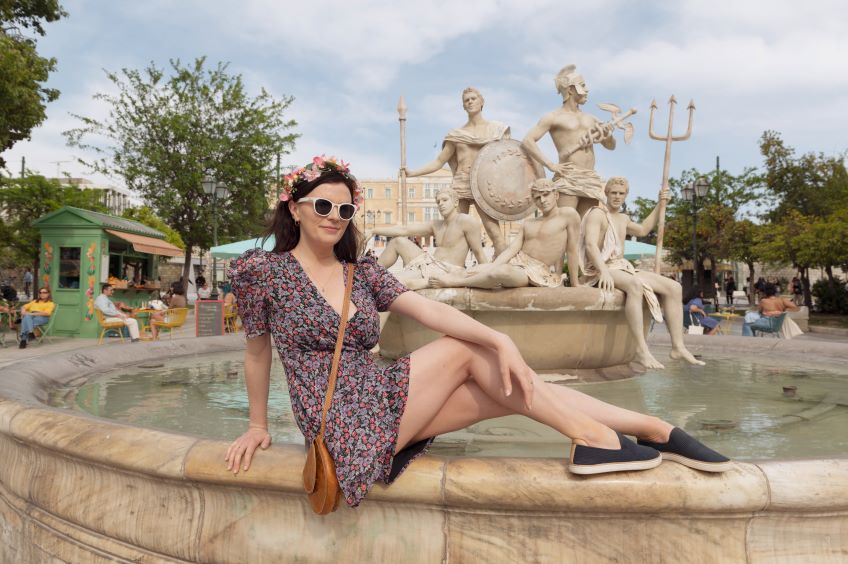
Despite so many shared moments, the women bring life’s baggage to Athens. Heather (Alice Lowe) is still glamorous but has family problems. Zoe (Amaka Okafor) is frustrated that her career has stalled and admits that her husband is the university professor; she just works in admin. As for Claire (Jayde Adams) far from achieving a bronze at the Olympics, she dropped out of diving and is now mightily overweight. Adult problems and cares prevent the friends from recapturing the good old days, although a spontaneous plunge in Poseidon’s fountain rekindles the carefreeness of youth. But then a spell in a police cell ruins the evening and leads to unspoken hurt finding its voice. The absence of Debbie looms large – over the adult friends and the last fifteen minutes of the film as the story gets bogged down in bathos.
Greatest Days falls into that category of film that uses a popular musician or band to tell a coming-of-age story with a strong narrative. In Yesterday a struggling musician realises he’s the only person in the world to remember The Beatles and capitalises on that discovery until he has to grapple with fame. In Blinded by the Light a lonely Asian student stuck in his conservative home, and hometown, finds his voice through Bruce Springsteen’s escapist music.
Greatest Days focuses on the friendship of girls united by their common obsession with a boy band but it might feel more like an extended pop video. The continual cutting between story lines, between timelines of 1993 and today and between narrative and musical interludes disrupts the story’s flow with its accompanying mood or emotions. It’s little wonder: original band members Gary Barlow, Howard Donald and Mark Owen serve as executive producers here, and in a clever scene, they pop up as buskers with one of the girls tossing a piece of change into their bucket.
But the song and dance numbers, though unrelentingly manic, are so imaginative and well-staged that you have to smile. All the greatest hits are covered, most often in impressive big scenes with dozens, if not hundreds of extras, many dancing. And, given the film’s origins and absence of copyright issues, it was always going to be about the music.

